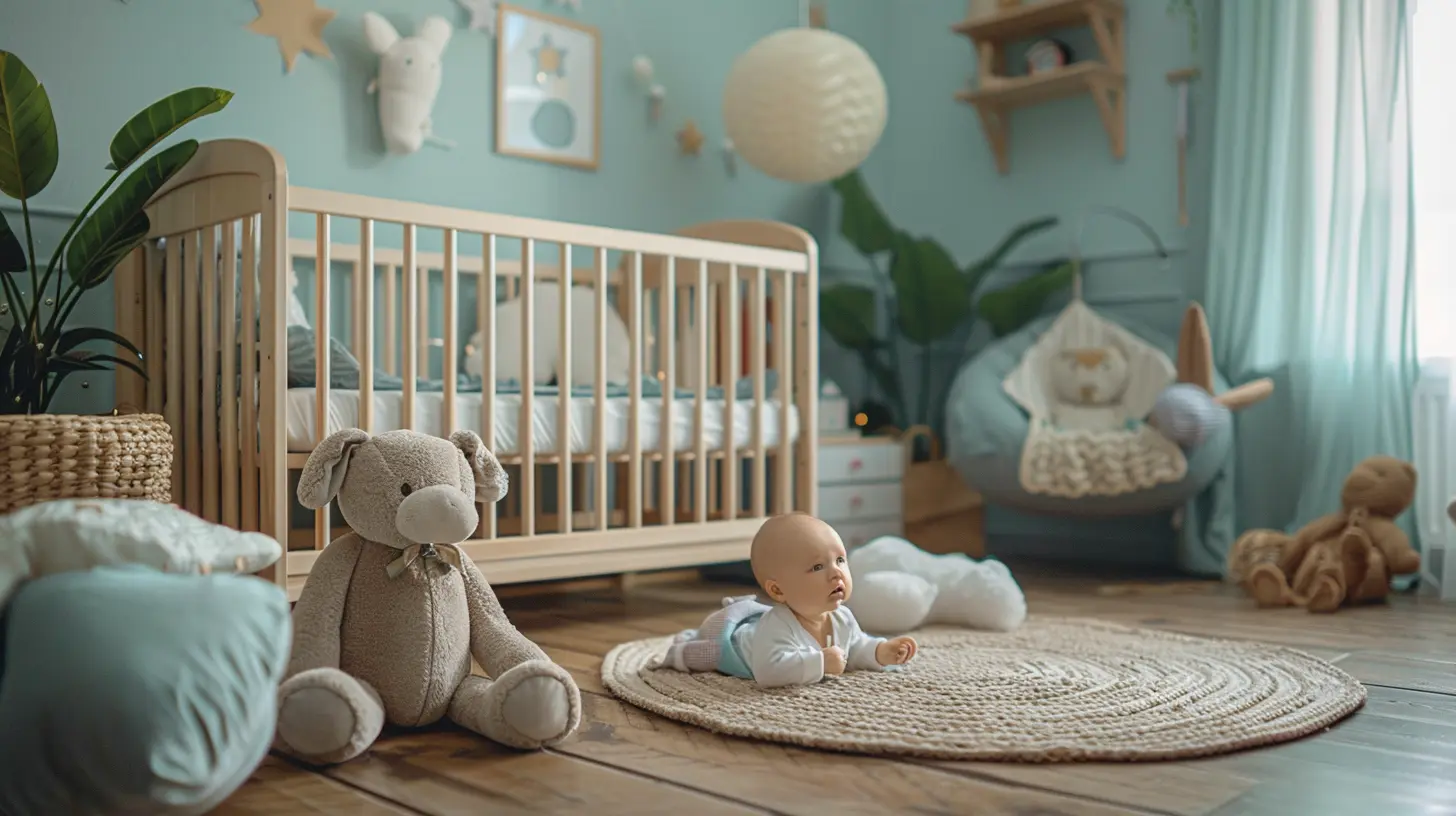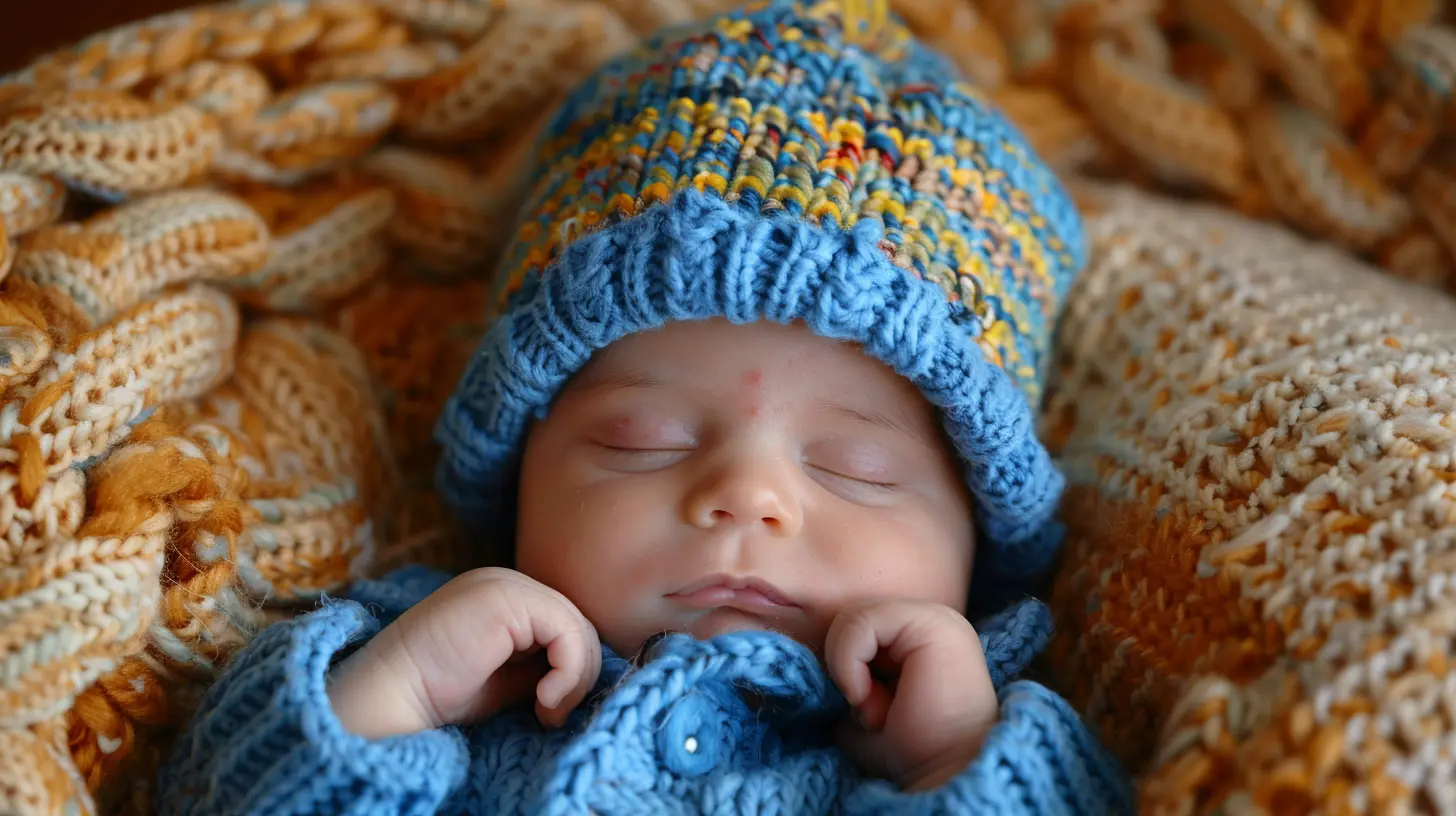Is Room Sharing Affecting Your Baby’s Sleep? Here’s What Experts Say
31 December 2024
Becoming a parent is exhilarating, magical, and, let’s face it, downright exhausting. Among the many questions that keep new parents awake at night (besides the cries of a hungry baby) is whether sharing a room with their little one could be affecting their sleep patterns.
It’s a topic that parents and experts alike have puzzled over for years. Should you share a room for bonding, safety, and convenience? Or could it disturb the quality of sleep—for both you and your baby? This article dives deep into the nitty-gritty of room sharing, what experts have to say, and how you can strike the right balance to ensure everyone sleeps like, well, a baby.
What Is Room Sharing?
Before we dive into the effects, let’s make sure we’re on the same page. Room sharing means having your baby sleep in the same room as you, but not in the same bed (that would be bed-sharing). It could look like your baby snoozing in a crib, bassinet, or play yard placed near your bed. The American Academy of Pediatrics (AAP) recommends parents share a room with their baby for at least the first six months—and ideally for the first year.Why? It’s primarily about reducing the risk of sudden infant death syndrome (SIDS), but as you’ll see, there’s a whole lot more to the debate.
The Pros of Room Sharing
Room sharing comes with a bundle of benefits, and many parents swear by it. Let’s break it down:1. Safety First: Lower Risk of SIDS
The most persuasive argument for room sharing is its connection to reducing the risk of SIDS. Babies who sleep near their parents are thought to have better-regulated breathing patterns and reduced risks of overheating or accidental suffocation. In short, having your little one nearby can act as an extra layer of protection.2. Easier Nighttime Feedings
Let’s be real—when you’re a sleep-deprived parent, convenience is king. With your baby just an arm’s reach away, midnight feedings become a whole lot easier. No need to trek across the house or fully wake yourself up when you can simply grab your baby, nurse or bottle-feed, and both of you can get back to bed.3. Bonding and Connection
There’s something incredibly reassuring about hearing your baby’s gentle breathing (or adorable little snores). Sharing a room can strengthen your bond, reminding your baby that you’re there to comfort them. Plus, let’s not forget the peace of mind it brings you as a parent.
But Can Room Sharing Affect Your Baby’s Sleep?
Now for the million-dollar question: Is room sharing messing with your baby’s sleep? The answer isn’t a simple yes or no—it depends on a variety of factors. While sharing a room has its perks, it’s not without potential drawbacks, particularly when it comes to sleep quality.1. Overnight Wakefulness: Are You Disturbing Each Other?
Babies are light sleepers by design. They cycle through lighter stages of sleep more often than adults, which makes them more prone to waking up. If you’re shifting in bed, coughing, or even snoring (hey, no judgment here!), it could wake your baby. And once your baby’s awake, well, you know it’s a party of one until they settle down again.At the same time, your baby’s noises—grunts, wiggles, or even fussy cries—might keep you from getting the uninterrupted sleep you desperately need. It’s a two-way street where both parent and baby can unintentionally keep each other from getting their best rest.
2. Hindered Self-Soothing Skills
Imagine this: Your baby stirs in the middle of the night. Instead of waiting to see if they’ll fall back asleep on their own, you swoop in at the first peep. Sound familiar? When parents room-share, they may be more likely to intervene too quickly, which can prevent babies from learning how to self-soothe and settle themselves back to sleep.It’s like training wheels—they need to come off eventually. Babies need practice learning to sleep independently, and some experts argue that room sharing can delay this milestone.
3. Parental Sleep Deprivation
Let’s not sugarcoat it: Parenting is physically and emotionally draining. Lack of sleep can leave you running on empty, and room sharing may amplify the problem. If every little noise your baby makes keeps you on edge, it might chip away at the quality of rest you’re getting. And unfortunately, overtired parents can lead to overtired babies—a vicious cycle that nobody wants.
What Do the Experts Say?
When it comes to room sharing and sleep, experts don’t all agree. However, here’s the general consensus:- The AAP recommends room sharing for the first 6–12 months for safety reasons, especially to reduce the risk of SIDS.
- Pediatric sleep experts often suggest transitioning your baby to their own room when they’re around 4–6 months old, as this is when babies typically begin developing more consistent sleep patterns.
- Every baby is unique. Some babies thrive in a shared space, while others might sleep more soundly in their own room.
Ultimately, the “right” choice depends on your family’s needs and priorities. It’s all about finding what works for you and your baby.
Tips for Successful Room Sharing (Without Sacrificing Sleep)
If you decide room sharing is the best choice for your family, don’t worry—there are ways to make it work without turning your nights into a sleepless marathon.1. Establish a Solid Bedtime Routine
Babies thrive on routines. A predictable sequence of events—like a warm bath, a lullaby, and a bedtime story—can signal to your baby that it’s time to wind down. This helps your baby transition smoothly to sleep, even in a shared room setting.2. Create a Sleep-Friendly Environment
Keep your shared room cool, dark, and quiet. Use blackout curtains, a white noise machine, and ensure your baby’s sleep space is free of distractions. Remember: A cozy sleep space isn’t just for your baby—it benefits you, too!3. Resist the Urge to Respond Immediately
It’s tempting to jump at every sniffle or stir, but give your baby a moment or two to settle themselves. They might surprise you by falling back asleep on their own.4. Set Boundaries as Needed
If room sharing is no longer working—whether for you, your partner, or your baby—it’s okay to rethink the setup. Transitioning to a separate room isn’t a parenting failure; it’s about doing what’s best for your family’s overall well-being.5. Monitor for Signs of Readiness
Around 4–6 months, many babies show signs of being ready for independent sleep. If your little one is consistently able to sleep through the night or settle themselves back to sleep, it might be time to explore moving them to their own room.When Is the Right Time to Stop Room Sharing?
There’s no one-size-fits-all answer, but here are some signs that it might be time to transition your baby into their own space:- Disrupted Sleep Patterns: If room sharing seems to be causing more wake-ups or restless nights for either you or your baby, it might be time to consider separate rooms.
- Space Constraints: Is the room feeling a little too cozy for comfort? You’ll want to reassess.
- Parental Needs: If you’re feeling burnt out or like your relationship with your partner needs some TLC, moving your baby to their own space could make a world of difference.
Final Thoughts
Room sharing is a deeply personal choice, and there’s no right or wrong answer. While it can promote safety and strengthen the parent-baby bond, it might also come with some challenges—like disrupted sleep and delayed self-soothing skills. The goal is to find a setup that works for everyone in the family.Ultimately, trust your instincts. You’re the expert on your baby, and as long as they’re happy, healthy, and well-rested (and you’re hanging in there too), you’re absolutely winning this parenting game.
all images in this post were generated using AI tools
Category:
Baby SleepAuthor:

Maya Underwood
Discussion
rate this article
13 comments
Stephanie Cummings
Ah, the great room-sharing debate! It's like tossing a sleep grenade into a nursery. One minute your baby is a snuggly dream machine, the next they're a tiny tornado! Let’s hope the experts have the magic potion for peaceful zzz's—because we all know that sleep-deprived parents aren’t cute!
February 2, 2025 at 5:30 PM

Maya Underwood
Thanks for sharing your perspective! Balancing room-sharing and sleep can be tricky, but expert insights may help find that sweet spot for both babies and parents.
Isabella McIlroy
Room sharing can impact sleep; consider your baby's needs for optimal rest.
January 30, 2025 at 5:32 PM

Maya Underwood
Thank you for your insight! It's crucial to balance room sharing with the baby's sleep needs for optimal rest.
Oscar Clark
Thank you for this insightful article! As a parent navigating room sharing, I appreciate the expert advice on its impact on my baby’s sleep. It’s reassuring to know that each child is different, and understanding their unique needs can help us find balance and improve our sleep routines.
January 28, 2025 at 4:37 PM

Maya Underwood
Thank you for your kind words! I'm glad you found the article helpful in navigating room sharing with your baby. Understanding each child's unique needs is key to establishing a better sleep routine.
Susan McGarvey
Trust your instincts—every family finds their unique sleep solution!
January 26, 2025 at 4:12 PM

Maya Underwood
Thank you for your insightful comment! Trusting your instincts is indeed key, as every family’s sleep dynamics are unique.
Brittany Mendez
Room sharing has its pros and cons.
January 23, 2025 at 4:40 AM

Maya Underwood
Absolutely! Room sharing can enhance bonding but may also disrupt sleep. It’s important to weigh both sides for your family's needs.
Mira Vasquez
Room sharing can be a double-edged sword. While it fosters bonding, it might disrupt your baby’s sleep if they’re easily awakened. Each family is different; observe your baby’s sleep patterns and do what feels right for you and your little one.
January 19, 2025 at 4:58 AM

Maya Underwood
Thank you for your insightful comment! It's true that every family's situation is unique, and closely monitoring your baby's sleep patterns can help determine the best arrangement for everyone.
Peregrine McGlynn
Thank you for this insightful article! It's helpful to understand the impact of room sharing on baby sleep. I appreciate the expert advice provided and look forward to implementing some of these strategies.
January 16, 2025 at 4:32 PM

Maya Underwood
Thank you for your kind words! I'm glad you found the article helpful and that you plan to implement the strategies. Best of luck with your baby's sleep!
Gisela Hayes
This article offers valuable insights on room sharing's impact on sleep, balancing expert opinions with practical tips for parents. Worth a read!
January 7, 2025 at 4:19 AM

Maya Underwood
Thank you for your feedback! I'm glad you found the insights valuable. Happy reading!
Bella Huffman
Great insights! It's fascinating how room sharing impacts sleep. As a parent, knowing the expert perspective helps me navigate my baby's sleep journey. Thanks for sharing!
January 6, 2025 at 3:42 PM

Maya Underwood
Thank you for your kind words! I'm glad you found the insights helpful for your baby's sleep journey.
Bellamy Mullen
Sharing a room with baby: great for bonding, but if their snores are louder than your coffee maker, it might be time for earplugs!
January 6, 2025 at 3:28 AM

Maya Underwood
Thanks for your comment! Balancing bonding and sleep can be tricky—earplugs may just be the solution for those noisy nights!
Mabel Horne
Valuable insights, thank you!
January 3, 2025 at 4:29 AM

Maya Underwood
Thank you for your kind words! I'm glad you found the insights valuable.
Solara Stone
In the gentle hush of shared dreams, Where whispered breaths entwine, Experts ponder, hearts align— Would love’s embrace bring peace or stir? Together, may we find the answer’s grace.
January 2, 2025 at 3:19 AM

Maya Underwood
Thank you for your thoughtful reflection! The harmony of shared spaces can indeed influence sleep, and we explore how love and connection play a role in this dynamic.
Kylie McMaster
This article insightfully examines the nuanced effects of room sharing on infant sleep, highlighting how the practice can foster security yet may disrupt sleep patterns. Balance is key.
January 1, 2025 at 3:51 PM

Maya Underwood
Thank you for your thoughtful comment! I appreciate your recognition of the delicate balance between security and sleep disruption in room sharing.
MORE POSTS

Managing Public Tantrums Without the Stress

How to Help Your Baby Adjust to Daylight Saving Time

Why White Noise Works Wonders for Infant Sleep

Creative Ways to Balance Work and Parenting as a Stay-at-Home Mom

Promoting Self-Regulation: Techniques for Managing Difficult Emotions

How to Avoid Triggering a Toddler Tantrum

Caring for Yourself When You Feel Overwhelmed by Parental Responsibilities

Crafting a Chore-Reward System That Motivates Genuinely

The Role of Routine in Promoting Healthy Brain Development